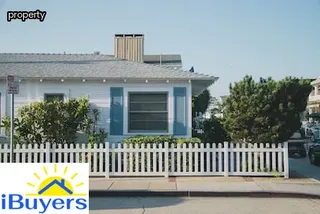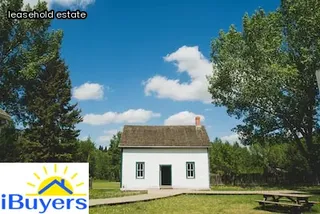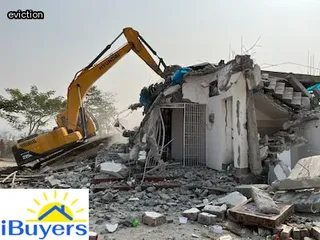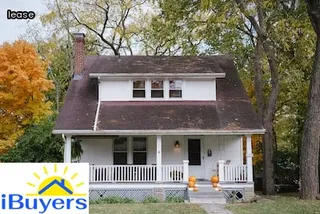Squatting is a term used to describe a person who resides on vacant land without the legal right to do so. Squatters are often motivated by poverty and homelessness, but they may also have other reasons for living on unoccupied land.
Squatters can be found in both rural and urban areas, with some individuals squatting out of necessity or as an expression of political defiance. In some cases, squatters may be trying to establish residency in order to qualify for certain benefits or aid programs.
While it is illegal in most countries for someone to reside on another’s property without permission, there are sometimes laws that protect the rights of squatters who have been living on the land for a certain period of time. It is important to understand the motivations behind squatting and the potential legal implications before engaging in this practice.

Squatting and trespassing are two terms that are often confused and used interchangeably. However, there is an important difference between the two.
Squatting is the act of occupying land or property without permission from the owner or rightful occupier. This can include living in a vacant building, setting up a tent on someone else's land, or even planting crops on unused land.
In contrast, trespassing is entering onto private property without permission from the owner. It does not involve taking possession of the property or staying on it for any length of time.
Squatters' rights exist in some jurisdictions as laws that provide certain protections for people who are squatting on someone else's property. These laws vary by country, so it is important to research your local laws to understand how they apply to squatting situations.
Additionally, it is important to note that squatters' rights do not give squatters ownership of a property; they merely protect them from being evicted without due process in court.
Squatting has existed since the dawn of civilization, but it wasn't until much later that squatters' rights began to be recognized and codified in some of today's legal systems. The term “squatting” is most often associated with people who occupy abandoned or unused buildings or land without permission from the owner.
This practice can sometimes be used as a form of protest against unjust laws or inequitable housing practices. In many cases, it is considered a form of civil disobedience and has been linked to anti-establishment movements throughout history.
In recent decades, there have been numerous attempts by governments to regulate squatting and limit its prevalence in society, such as criminalizing it in some countries. However, despite these regulations, squatters’ rights are still enshrined in certain legal systems such as England and Wales, where squatters may legally take possession of an unoccupied property if they’ve resided there for a certain period of time without permission from the owner.
Additionally, there are still many places around the world – both developed and developing – that continue to recognize squatters’ rights and allow them to live on land without fear of eviction or prosecution. Squatting remains a controversial issue today and is seen differently depending on one's political leanings; however, its longevity speaks volumes about its place in society for generations to come.

Squatting is when someone takes up residence in a piece of property that they do not own, rent or have any legal right to occupy. Squatters' rights are the laws that give certain people certain rights to remain in and use a piece of land for which they have no legal title.
The rights of squatters vary from country to country and are often subject to interpretation. In many cases these laws protect people from being evicted without due process, allowing them to remain on the property until their eviction is proven lawful by a court.
In some countries, squatters may even acquire legal title to the property if they can prove continuous occupancy for a certain number of years. Although squatters' rights exist in some places, it's important to understand that these laws don't always apply and that squatting is still considered illegal in most jurisdictions.
Understanding the precise nature of these laws can be complicated and varies greatly depending on where you live, so it’s best to consult an attorney or real estate professional before attempting to claim squatters’ rights on any property.
Squatting, or the act of occupying a property without permission from the owner or legal tenant for a period of time, is an illegal act in most countries. While squatters' rights vary depending on jurisdiction, legal implications of squatting are generally the same.
In most cases, squatting is considered to be a form of criminal trespass and those convicted of squatting can face fines and/or jail time. Property owners may also take civil action against squatters, although success varies depending on the local laws and evidence presented by either party.
In some cases, squatters may be able to establish possession rights if they occupy a property for a long enough period of time; however, it is important to note that this differs significantly from ownership rights and squatter's rights do not supersede those of the true owner. Furthermore, squatting tenants can still be evicted by the rightful owner once their presence is discovered.
As such, it is important for anyone considering engaging in this practice to understand their local laws and the possible implications involved before taking any action.

Squatting is a complex issue, and one that has to be handled carefully. Establishing laws around squatter’s rights is critical in order to protect the rights of both the property owner and the squatter.
Squatting is defined as occupying an abandoned or unoccupied space or building that a person does not own, rent, or otherwise have lawful permission to use. Depending on the jurisdiction, squatters may gain certain legal rights over time if they meet certain requirements.
In some countries, such as the United Kingdom and some parts of the United States, squatters can acquire ownership of a property through adverse possession if they occupy it for a specified period of time. Other jurisdictions may provide squatters with limited protections from eviction or harassment under certain conditions; however, their rights are still far from those of traditional tenants.
It is important for lawmakers to consider all sides when developing legislation around squats and squatters' rights in real estate so as to protect both parties involved while still upholding the law.
The legal concept of adverse possession and its implications for property ownership have garnered a great deal of attention in recent years, particularly as it relates to squatters' rights. This is because the rule of law allows someone to acquire title to real estate that they occupy without permission from the original owner.
Adverse possession can take place when an individual occupies another person's land without their consent and meets certain requirements, such as paying taxes on the land or making improvements to it. In most cases, if these conditions are met for a certain period of time, usually around 7-20 years depending on state laws, the squatter can gain full title to the property.
This has led to a variety of issues for original property owners and tenants who may find themselves suddenly evicted from their own homes due to someone else claiming ownership via adverse possession. With eviction rates rising in many areas, this has become a cause for concern among legislators who are looking for ways to protect those affected by squatting and reduce the power of this legal principle when it comes to disputes over real estate ownership.

When it comes to evicting a squatter from a property, there are certain laws and regulations that must be followed in order to do so legally. Generally speaking, in order for a property owner to evict a squatter from their land, they must first provide the squatter with written notice of the eviction and then begin legal proceedings in court.
The court will then determine whether or not the squatting is justified or illegal under state law. In many cases, squatting is considered illegal when an individual has occupied someone else's property without permission for an extended period of time.
If the court determines that the squatter is living on someone else's property without permission, they can issue an order of eviction and require the squatter to leave immediately or face criminal charges. Property owners should also be aware that if they choose to take matters into their own hands and forcibly remove a squatter without due process, they may be held liable for any damages caused by their actions.
When dealing with problematic squatters, there are several legal remedies that need to be considered. First, it is important to understand the laws in your jurisdiction related to squatting and squatter's rights.
Depending on where you live, you may have options like applying for an eviction order or seeking a court injunction that would require the squatter to leave the property. It is also possible to take civil action against a squatter in some jurisdictions, which can help recover any financial losses incurred due to their presence on the property.
Additionally, it may be possible to work with local law enforcement to remove a squatter from the premises if they are found trespassing and ignoring orders from authorities. Understanding all of these legal remedies can be helpful when attempting to deal with a squatter who has occupied real estate without permission.

There are many common misconceptions about squatting and squatter’s rights in real estate. Squatting is not the same as renting a property, as squatters have no legal right to occupy someone else’s property without permission.
Squatters also cannot claim ownership of a property, even if they have been living on it for an extended period of time. It is important to remember that squatting is illegal, and that those who attempt to squat may face fines or jail time.
Squatters generally do not pay rent or utilities and lack the ability to enter into any kind of lease agreement with the rightful owner. Furthermore, squatters are not entitled to receive any kind of compensation when evicted from a property by the rightful owner.
While some states may provide minimal protections for some types of squatter situations, these protections still typically fall short of providing full legal rights for squatters. It is best for anyone considering becoming a squatter to seek professional legal advice before taking any action.
Negotiating with squatters can be a tricky business and it is important to have a thorough understanding of the laws and regulations that apply to the situation. It is also beneficial for both parties to work together in finding an amicable agreement that meets the needs of all involved.
It is recommended that each party consult with competent legal counsel before entering into any negotiations. Furthermore, it is essential to understand the rights of both parties, as well as any restrictions imposed by law.
Clarifying these points at the outset can provide clarity and assurance that a fair agreement can be reached with minimal disruption or conflict. Additionally, it is important to take into account any financial constraints or other considerations that may affect the outcome of negotiations.
By taking these steps, each party will be better prepared to reach a mutually satisfactory resolution in a timely manner and with little difficulty.

Property owners must be aware of their rights when dealing with squatters. If a squatter has taken up residence on someone's property without permission, the owner should first contact local law enforcement to ask for help in removing the squatter.
In some cases, police may be able to remove the squatter from the property immediately. In other cases, it may take longer for legal action to be taken.
If a court order is necessary, owners can hire an attorney to assist them in obtaining one. Owners should also research their state’s laws related to squatting and understand what options they have for evicting a squatter from their property.
It is important that owners follow the proper protocols and procedures when dealing with squatters as failure to do so could result in legal ramifications. Additionally, if there are any disputes between the property owner and the squatter regarding occupancy or payment of rent or other costs associated with the premises, it is best to seek assistance from a lawyer who specializes in this area of law.
When it comes to real estate, squatting is a complicated issue and can be difficult to navigate. To determine whether someone is a trespasser or a legitimate tenant, the status of the property must first be determined.
If the property is already owned by someone else, then any occupants are automatically trespassers. Legitimate tenants have rights that protect them from eviction as long as they are paying rent according to their lease agreement.
Squatters’ rights also come into play when determining if someone is a trespasser or a legitimate tenant; if an individual has been living in the same place for an extended period of time without any legal objections being raised, they may gain some rights over the land. Lastly, in order to establish if an occupant of a property is a trespasser or legitimate tenant, written proof such as rental agreements and/or leases should be asked for and reviewed.
It’s important to remember that when it comes to understanding squatters’ rights and trespassers in real estate, laws vary from state-to-state so it's best to consult with local real estate professionals for further advice and guidance before taking any action.

Squatting can have a variety of social implications, both positive and negative. From an economic standpoint, squatting can benefit low-income tenants by providing access to housing that they may not be able to afford in a more traditional manner.
This can provide them with shelter and stability, allowing them to save money for other necessities such as food and medical care. On the other hand, squatting can also cause property values to decrease due to the presence of unauthorized tenants, as well as create safety issues for the surrounding community when squatter camps are established.
Additionally, while some local governments recognize and protect certain rights of squatters, laws vary widely across different regions. This lack of uniformity makes it difficult to determine the legality of any given situation, leaving those affected without sufficient legal protection or recourse against potential eviction or displacement from their homes.
When it comes to squatting and the rights of squatters in real estate, there are both pros and cons to consider. On one hand, allowing people to occupy vacant properties can provide a roof over their heads which is especially useful for those who are homeless or otherwise unable to find adequate housing.
Additionally, this can help reduce the number of abandoned buildings that blight neighborhoods and become havens for criminal activity. However, there are also several potential drawbacks that come with allowing people to squat in vacant properties such as a lack of security for the occupants, potential health hazards from long-term exposure to an uninhabitable space, and legal complications if the owner of the property decides to reclaim it.
Some may also argue that allowing people to squat on private property gives them an unfair advantage over others who must go through proper legal channels in order to purchase or rent housing. It is important for everyone involved – from policy makers to potential squatters – to understand both sides of this contentious issue before making any decisions on how best to handle it.

Before attempting to establish squatters' rights, it is important to understand local regulations regarding property rights. This includes research into the specifics of local laws and potential legal implications of claiming squatters' rights in each jurisdiction.
It is also important to evaluate the current owner's position and any claims they might have on the property. Understanding how statutes define squatter's rights in local areas helps to identify instances where such claims may be valid.
For example, many jurisdictions require that a squatter must occupy a property for a certain period of time before they can make a claim on it. Furthermore, it is important to consider that regional customs and interpretations of these laws can vary significantly, making an understanding of the nuances of each area necessary.
In some cases, landlords may even be required to provide notification to squatters of their legal rights according to the law. Ultimately, when considering whether or not an individual has a legitimate claim on a piece of real estate, assessing local regulations around squatters' rights is essential for determining one's legal standing.
Landlord insurance can provide a vital layer of protection for property owners against the risk of unlawful occupants. Squatting, or the act of occupying an uninhabited property without permission from the owner, is a real concern for homeowners and landlords alike.
Squatting laws vary by state, so it’s important to understand your local statutes and regulations with regard to squatter rights before investing in real estate. Without landlord insurance, you may find yourself at risk of financial loss if you are unable to evict squatters from your property in a timely manner.
Landlord insurance can cover damages to your property caused by squatters and may also pay legal fees associated with their eviction. It’s important that landlords take all necessary measures to prevent squatters from taking up residence on their property and ensure they have adequate landlord insurance coverage in place should it become necessary.

When renting out vacant properties, it is important to minimize risk and be aware of squatting and squatters' rights in real estate. To protect yourself from potential liability issues related to squatting, a landlord should make sure that their property is secure.
This requires regularly inspecting the property and ensuring that all locks are functioning properly. Additionally, if possible access to the vacant property should be limited or restricted by installing security cameras or alarms or by having an on-site caretaker.
It is also important to verify that all tenants have valid rental agreements and collect security deposits from them prior to move in day. Lastly, it is crucial for landlords to stay up-to-date on local laws regarding squatting and squatters' rights so that they can respond appropriately if a situation arises.
Being proactive when it comes to renting out vacant properties is essential for reducing legal risks associated with squatting.
Landlord insurance policies typically cover a range of potential disputes, including those between landlords and tenants or squatters. Generally, the policy covers legal costs associated with defending against any actions taken by a tenant or squatter such as eviction, property damage, or fraud; however, the scope of coverage may vary depending on the insurer.
Additionally, many policies provide coverage for financial losses in cases where a tenant or squatter is found to be acting unlawfully on the property. Landlords can also purchase additional coverage for items such as loss of rent due to tenant/squatter disputes and malicious damage caused by squatters.
It is important for landlords to be aware of what their policy includes and what additional coverage they might need before entering into any agreements with tenants or squatters.
Squatting, or occupying an abandoned or unoccupied space or building, is illegal in the United States. Squatters' rights, however, may provide some protections to squatters depending on the circumstances of their occupation and local laws.
Squatters can gain a legal right to stay in the property they are occupying if they have been there long enough and have fulfilled certain legal requirements. In some states, if a squatter has been living on a property for a minimum period of time without being challenged by the owner, they may acquire legal title to that property.
In other states, squatters must demonstrate that they have made valuable improvements to the property before they can gain any legal rights over it. Generally speaking, US squatting laws are designed to protect existing land owners against individuals who take possession of another’s land without permission and with no intention of paying rent or compensating the owner for its use.

Are squatters' rights OK? Squatting is the act of occupying a property, usually abandoned, that one does not own and living there without permission from the owner. Even though squatting is illegal in many parts of the world, it can sometimes be seen as an alternative form of housing for people who cannot afford to rent or buy property.
But what are the legal implications of this practice? To answer this question, we must examine how the law views squatting and squatters's rights in real estate. Generally speaking, squatting is illegal because it involves taking possession of someone else's property without their permission or legal authority to do so.
However, in some countries there are laws that recognize a squatter's right to possess land if they have occupied it over an extended period of time. This concept is known as 'adverse possession' and is based on the idea that after a long enough period of occupation, the squatter can establish their ownership rights to the property.
In some cases, for example if a squatter has made improvements to a property such as installing plumbing or electricity, they may even be able to claim compensation from the original owner. Ultimately, whether or not squatters rights are considered valid depends on individual jurisdictions and their associated laws.
Squatting is a form of occupying empty or abandoned land or buildings without authorization from the owner. People squat for a variety of reasons, including economic hardship, housing insecurity, and a lack of access to affordable housing.
Many people have resorted to squatting due to financial difficulties such as joblessness or inadequate wages. Squatting can also be seen as a form of protest against the inaccessibility of adequate housing for those with limited resources.
Additionally, some people may squat to gain access to land that they otherwise would not be able to purchase due to high prices. Finally, many people choose to squat in order to gain control over their living environment and make it more comfortable and secure.
No matter the reason for squatting, individuals should understand their rights when it comes to occupying abandoned property and be aware of any laws related to squatters' rights in their area.
A: The Squatter Movement is a social movement of people who occupy and live in abandoned or unoccupied buildings, land, or other properties, typically without the permission of the owner. It has become an important part of contemporary political discourse, with movements such as the Squatting Movements, which support self-governance and autonomy within squatted houses, advocating for housing rights and squatters' rights.
A: Squatters are people who occupy property or land without the legal right to do so.

A: Squatting is when a person unlawfully occupies an uninhabited or abandoned building or land. Squatters may be entitled to certain rights depending on the jurisdiction, including the right to remain in the property until formally evicted by the legal owner. Illegal settlements, or squatter colonies, are created when a group of squatters come together and occupy an area of land without permission from the legal owner.
A: A squatter is someone who occupies property without permission or legal right. Squatters are usually considered tenants at will, tenancy at sufferance, or holdover tenants as opposed to standard landlord-tenant agreements.
A: Squatters are people who occupy a property or land without the legal right to do so.

A: Squatter Settlements, also known as Shanty Towns or Informal Settlements, are typically built without permission from the local government and are inhabited by people who do not own the land or buildings. They typically lack access to basic services such as running water and sanitation.
A: Squatters are individuals who occupy a property without permission or legal right. They may do this in an attempt to establish a legal claim to the property, or simply to make use of it without paying rent or other compensation.
A: Squatters in New York City and New York State are people who occupy a property they do not own or rent, typically without the permission of the legal owner.

A: Squatters are people who occupy an uninhabited property or land without the permission of the legal owner.
A: Squatters are an increasing problem in the State of California. They often occupy abandoned or derelict buildings and land that they do not own, creating a nuisance and a danger to the community. These homeless individuals pose a significant financial burden on the state as they require assistance from social services and law enforcement agencies.
A: Squatters are individuals who unlawfully occupy a rental property without permission from the landlord. In America, squatting is considered a violation of Landlord-Tenant Laws and can negatively impact the Landlord-Tenant Relationship. The landlord may be able to take legal action against the squatter, or may need to negotiate with them for an agreement in order to have them move out of the property.

A: Squatters are individuals who illegally occupy an abandoned or unoccupied area of land or a building, usually residential, that they do not own, rent or otherwise have lawful permission to use.
A: A Sheriff typically has the authority to evict squatters engaging in criminal activities on Real Property and may issue an arrest warrant for criminal offence.
A: Yes, squatting is considered a crime in many jurisdictions. It is often seen as an illegal form of trespassing and can lead to criminal charges if the property owner chooses to pursue them.

A: Squatters are people who occupy a property without permission or a legal right to do so. They may stay in the property for extended periods of time, and may even attempt to claim ownership over it. Squatting is often seen as an act of civil disobedience, but can also be considered a crime in some jurisdictions.
A: Squatting is the occupation of an abandoned or unoccupied space or building, usually residential, without the permission of the owner. In many cases, squatters occupy low cost housing or low-income housing such as apartments in order to provide affordable living options for themselves.
A: A squatter is an individual who occupies land or a property without the legal right to do so.

A: Squatters are people who illegally occupy abandoned or unoccupied property that they do not own or rent.
A: Squatting is the act of occupying an abandoned or unoccupied area of land or property without the permission of the owner. Squatters typically do not have any legal rights to the property, however, in certain circumstances they may be able to claim adverse possession if they can prove they have occupied the property for a certain period of time. This means that they may be granted some rights such as being able to stay on the property and sign a lease agreement with the owner.